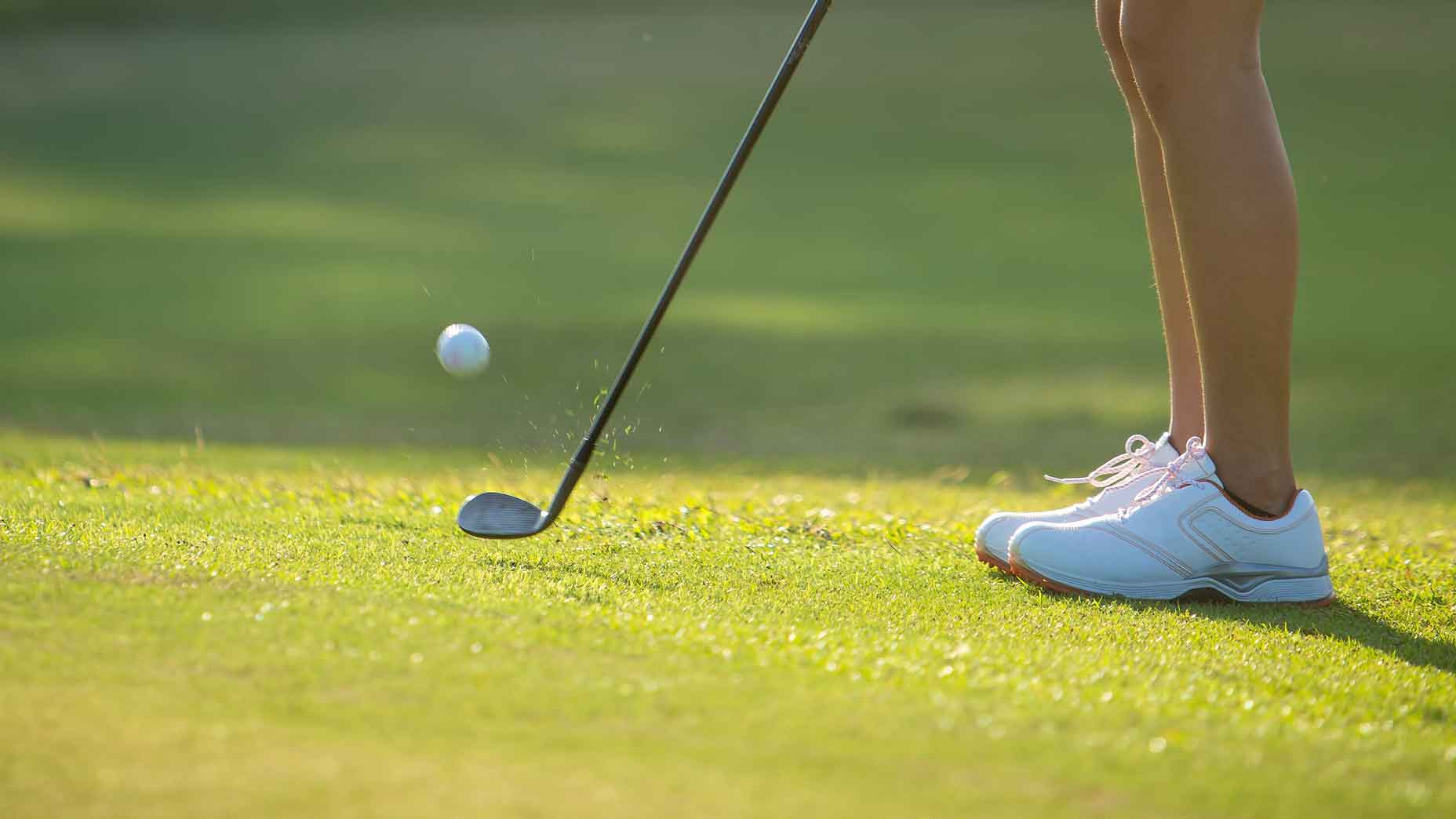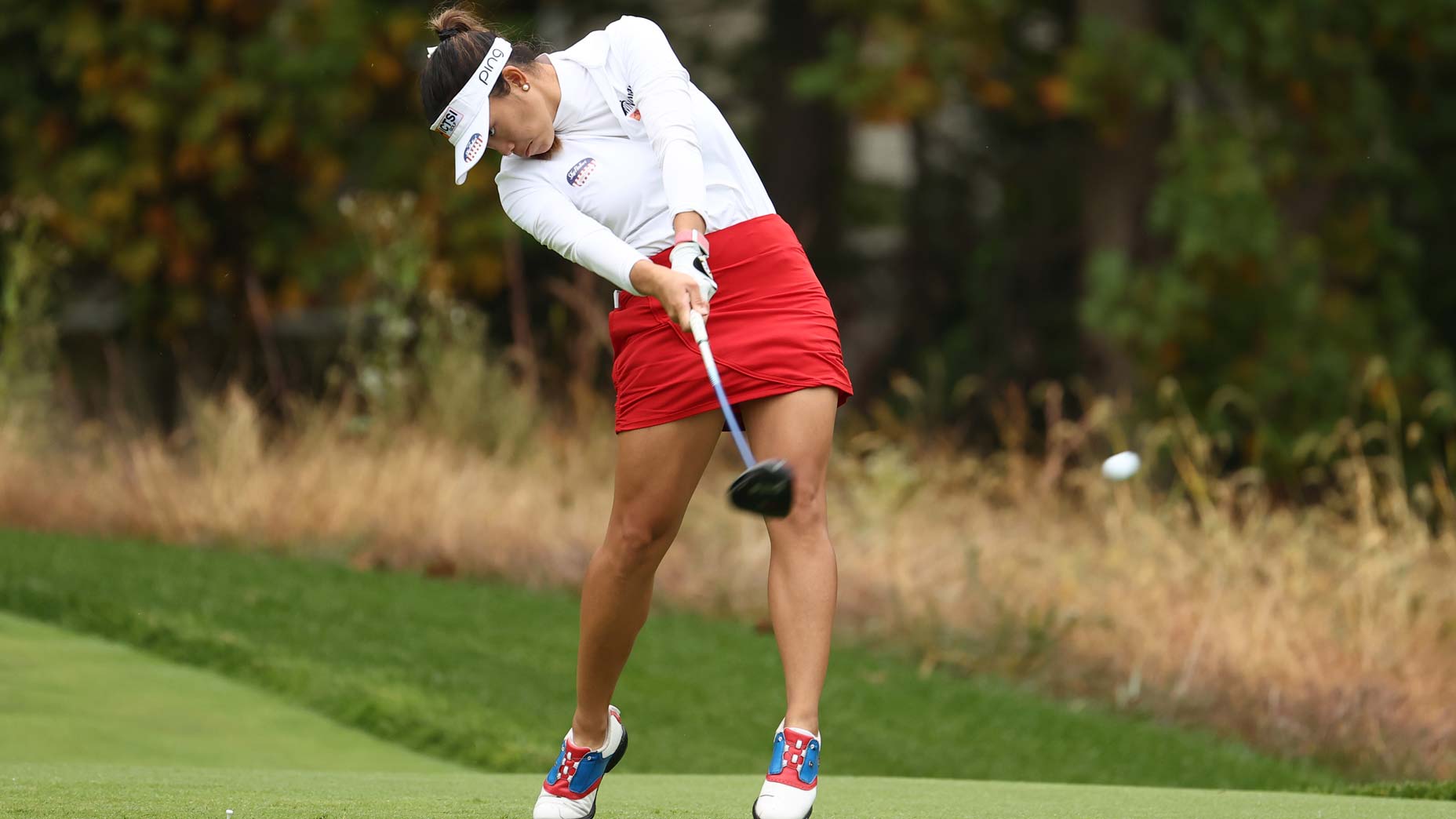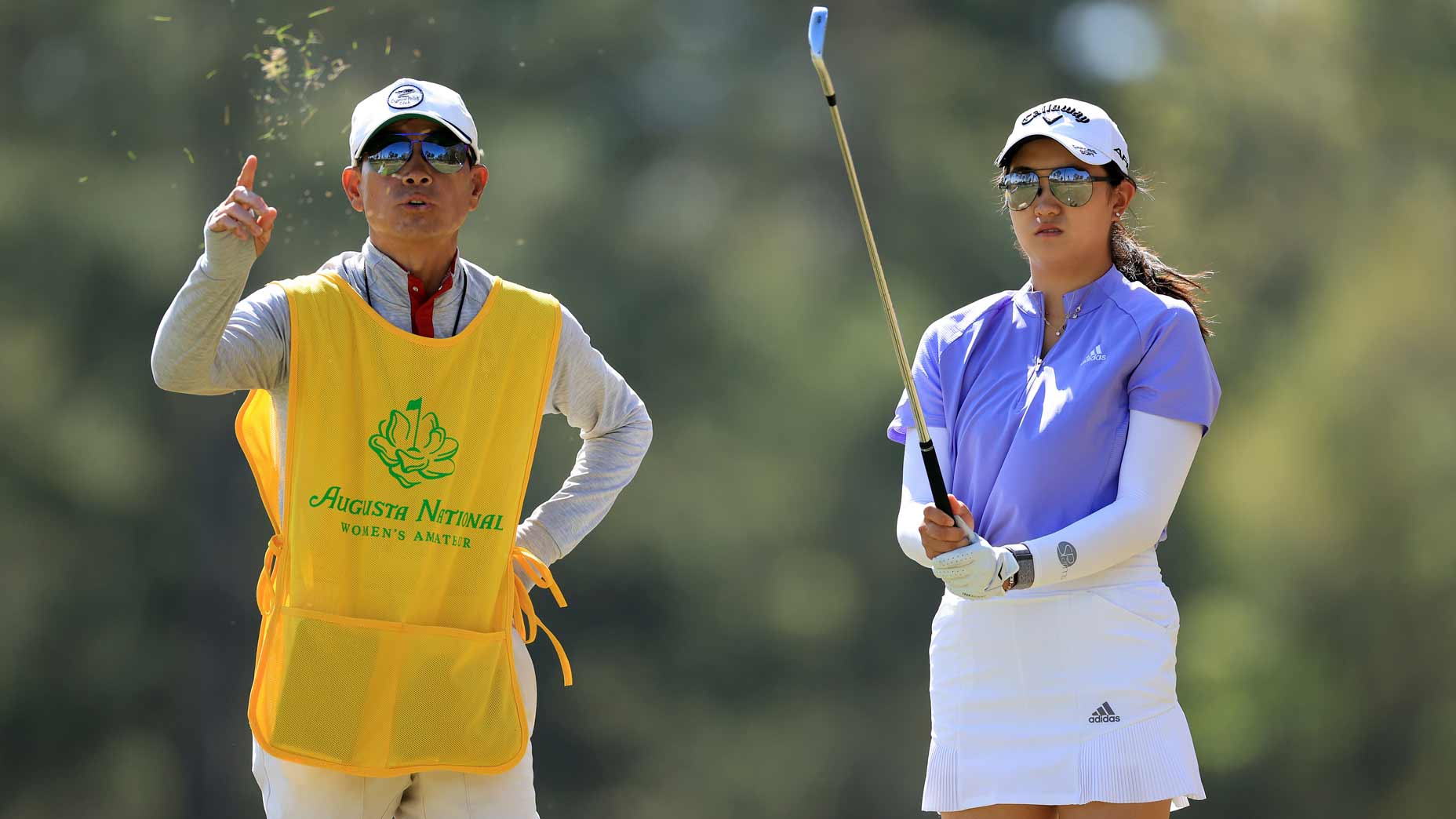If you were among the millions of viewers who enjoyed watching Phil Mickelson win his sixth major championship at the Ocean Course at Kiawah Island over the weekend, you were likely impressed by Mickelson’s short-game wizardry. Time and again, Mickelson escaped from difficult lies and situations with a fabulous display of chipping and pitching skill.
While professionals like Mickelson are well capable of executing beautifully lofted pitches with near-perfect trajectory and distance control, closely-mown grass and elevated greens at courses like Kiawah can be especially difficult for recreational players who aspire to hit the perfect pitch.
The challenge with elevated, fast greens is that if you land the ball short of the crest of the hill, it can roll back to you. And if you carry the golf ball too far onto the green, it can easily roll off the other side.

My recommendation for attacking shots of this variety is to employ the bump-and-run, a low-maintenance, reliable shot that can be easily executed by golfers of any skill level. The best part? You can use just about any club in your bag to achieve your desired shot distance. Ready to master the bump-and-run? Here’s how to do it.
The keys to hitting a perfect bump-and-run
-Choke down on the club just a bit. This will help you to be more accurate with distance and direction.
-Narrow your stance to help minimize body motion. I like to see your heels about one clubhead-width apart.
-Center the ball in your stance. Moving it slightly back is okay too. Since your stance is quite narrow, it won’t make a huge difference either way.
How to hit the ball higher: 6 tips to make your ball soarBy: Kellie Stenzel, Top 100 Teacher
-Let your weight, upper body and club shaft lean slightly toward the target. Leaning your upper body forward toward the target and dropping your forward shoulder will help to pre-set your impact position, and also helps the clubhead to make contact with the ground after the golf ball, on the target side. I like to think about this as the insurance that your club will hit the ground in the right location.
-Your weight should start, stay and finish on your forward foot. This will help you to be more accurate with distance control, as well as maintaining the bottom of your swing arc.
A few things to keep in mind as your practice: The bump-and-run motion is much like a chip shot, which is similar to an energetic putting stroke that hits the ground. As a general rule, a bump-and-run swing stays below hip-level, both back and through.
The most reliable way to control distance with this shot is via club selection. The longer the total distance of the bump, the more you would want to select a club with less loft (like an 8-iron instead of a pitching wedge, for example).
For shots that need to clear an extreme uphill slope, the green needs to be taken into account. The more extreme the slope of the hill is, the more you want to adjust with a less-lofted club. Spend some time practicing this, where you bump the ball right into the hill and see if your chosen club has enough forward momentum to climb it. If your ball lands into the hill and doesn’t roll forward enough to get to the green, then club up (i.e., use less loft) and try again.
With a little bit of practice, you will learn how much you need to adjust your club selection to produce perfect bump-and-runs that hit right into the hill and roll all the way to the pin. This shorter stroke helps limit risk by resulting in smaller mistakes, lower scores and more fun. And as an added bonus, this shot also minimizes the effect of the wind — an important consideration at places like Kiawah!
Need help unriddling the greens at your home course? Pick up a custom Green Book from 8AM Golf affliliate Golf Logix.
For more golf tips from Kellie Stenzel, click here.











